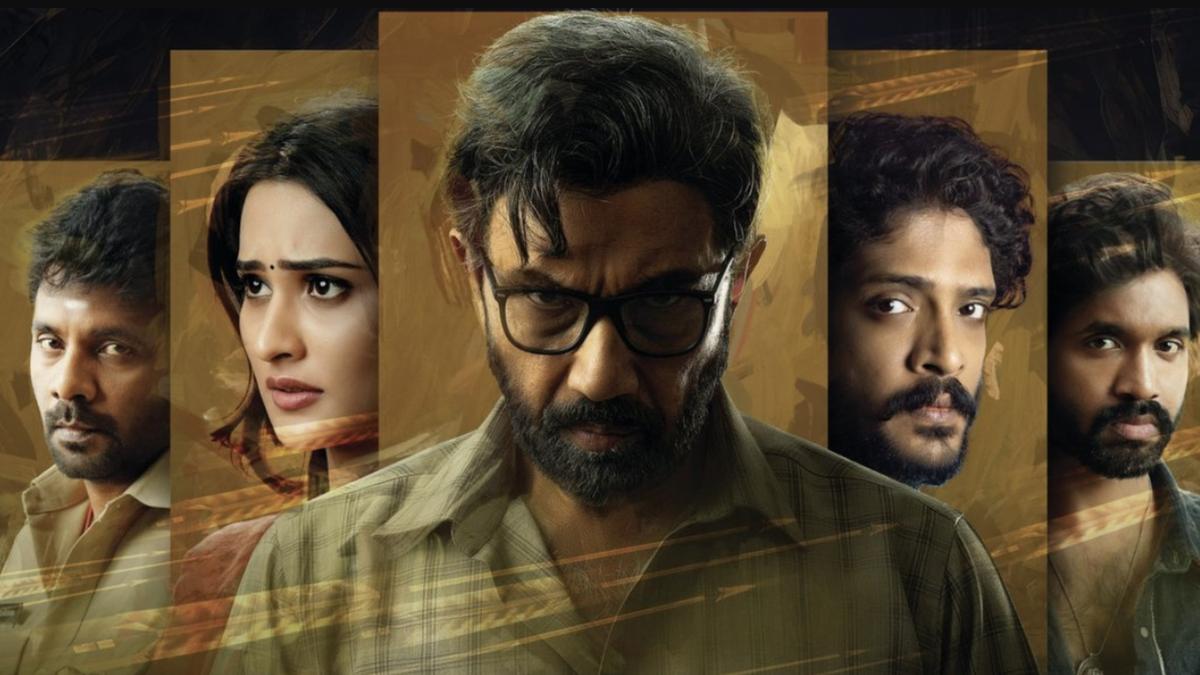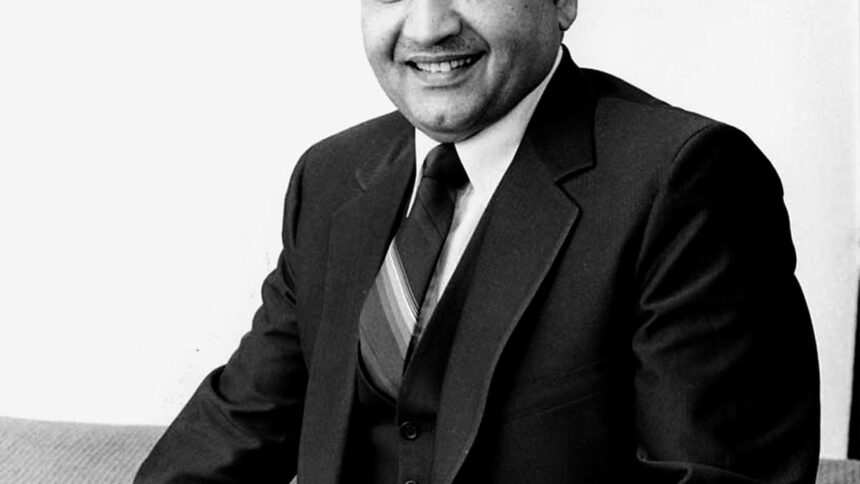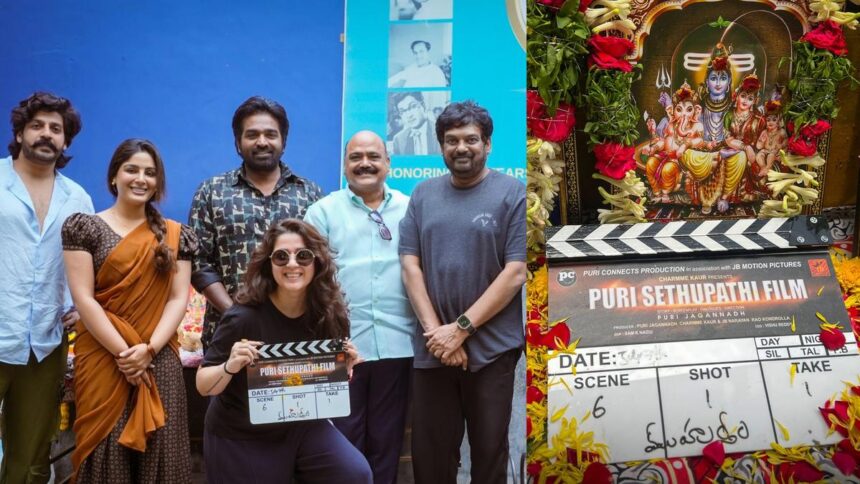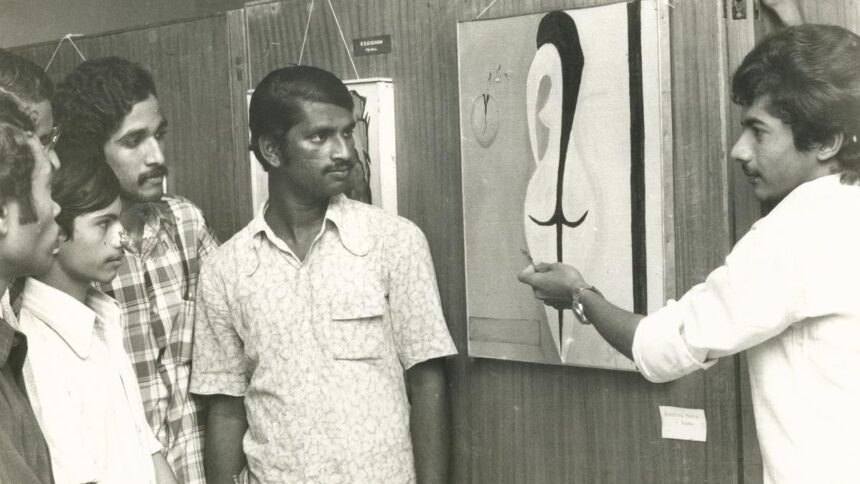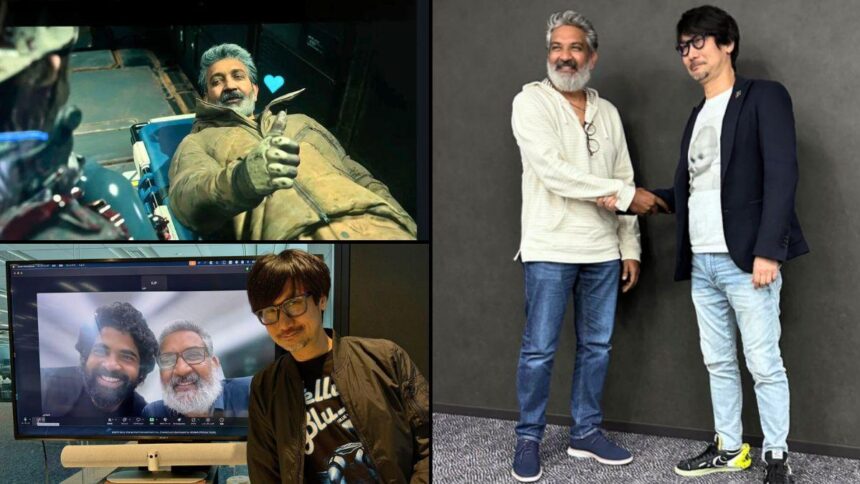There is a certain degree of freedom that storytellers enjoy with a film that is not tailored to suit an actor’s image. One can sense that liberation in director Mohan Srivatsa’s Telugu film Tribanadhari Barbarik, which, despite being a done-to-death redemption drama centred on a missing child, rises above the limitations of its genre, thanks to crisp storytelling and well-etched characters.
The title, Tribanadhari Barbarik, is a reference to Ghatotkacha’s son in the Mahabharata; he is a gifted warrior who vows to support the losing side in the war. The film’s protagonist, Shyam Kathu (another name for Barbarik, played by Sathyaraj), a psychiatrist, is a warrior-like figure for his granddaughter Nidhi, who goes missing one night. The grandfather will not rest till he finds her.
The film alternates between the past and the present, as Shyam pieces together clues about Nidhi’s whereabouts, with the help of a friendly underdog cop, Chandra (Satyam Rajesh). Simultaneously, a thread unfolds about two childhood friends, Dev (Kranthi Kiran) and Ram (Vasishta Simha), showcasing what drives them to commit petty crimes for a livelihood, until karma catches up with them.
Tribanadhari Barbarik
Director: Mohan Srivatsa
Cast: Sathyaraj, Vasishta N Simha, Satyam Rajesh, Udayabhanu
Runtime: 127 minutes
Story: A psychiatrist goes all out to find his missing granddaughter
The story is an amalgam of incidents that lead to a crime involving a girl. Most characters have a voice, an arc and a say in the plot progression. It is no vanilla tale of heroism built around the victimisation of women. The missing child knows to fight for herself. There’s a woman who is encouraged to confront her abusive past. A massy female don unabashedly calls the shots in Hyderabad’s Barkhatpura.

The narrative sincerely tries to understand the circumstances beneath the character’s choices. What could turn a man into a monster? It is not only worried about that one ill-fated night affecting a girl, but equally interested in the psyche of the perpetrator (further justified by Shyam’s profession). He leads a relatively ordinary life with simple dreams until the beast in him does the unthinkable.
While the male gaze in the writing is evident, it is still economical. It opts for a no-frills, slow-burn approach and is in no rush for answers. It shoots itself in the foot to an extent with the slightly convoluted second hour, though. A few problematic characters (such as Padma’s effeminate assistant Nari), the half-comic subplot around the goon Das and the typical item number affect its momentum.
The director, while dealing with many familiar sequences, teases the viewer about treading the obvious path but lends it an unconventional twist. There are multiple versions of the same incidents, key facts are intentionally hidden, and mythical parallels emerge in unexpected situations (though one wonders if it could have been done with greater impact).
There’s an unpredictability to the film’s trajectory, which gives a different appeal to an increasingly worn-out formula, pushing the viewer to pay attention to the proceedings. Like the recent Fahadh Faasil-Vadivelu film Maareesan and Vijay Sethupathi’s Maharaja, it veers towards vigilante activism, but the restrained treatment is its saviour. The climax, in particular, is effective.
Sathyaraj delivers a restrained portrayal of a psychiatrist looking to settle scores. Despite the drastic circumstances, he keeps the character’s emotions in check. Satyam Rajesh is impressive as a vulnerable cop who keeps fainting at the sight of dead bodies. Both Vasishta N Simha and Kranthi Kiran, as childhood pals-turned-criminals, deliver neat, assured performances.

Meghana Sunil, the child artiste, is a fine find. One expected more out of Udayabhanu’s Vakili Padma, especially after her introduction with such pomp and aura. The authoritarian presence comes naturally to her, but the role lacks meat. Sanchi Rai and Prabhavathi (as Ram’s mother) make a mark in crucial roles, while the likes of Motta Rajendran and VTV Ganesh have nothing new to offer.
The film sometimes misses out on a distinct Telugu flavour due to its casting choices — from Sathyaraj to Motta Rajendran, VTV Ganesh to Vasishta N Simha, to name a few. The background score (by Infusion band), cinematography (by Kushendar Ramesh Reddy), and imaginative editing choices (Marthand K Venkatesh) bolster its appeal on the technical front.
Tribanadhari Barbarik narrates a familiar story and yet tweaks it just enough to keep the audiences invested for over two hours. Look past some of its rough edges and this is a film that is aware of its boundaries and makes optimum use of its resources.
Published – August 29, 2025 09:19 am IST








